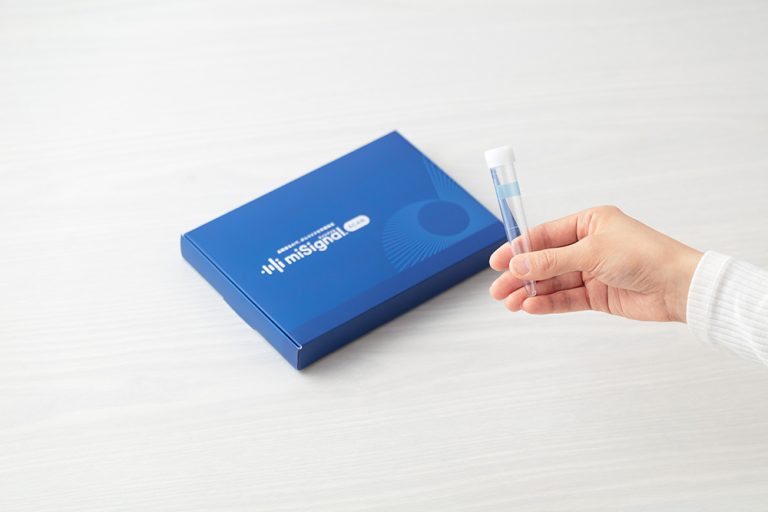Cancer ranks as one of the top causes of death worldwide. The National Cancer Institute reported nearly 20 million new cancer cases and 9.7 million cancer-related deaths globally in 2022, with projections showing a rise to 29.9 million new cases by 2040.
Craif, spun off from Nagoya University in Japan in 2018, is using microRNA(miRNA) to develop an AI-powered early cancer detection software, and it has raised $22 million in Series C funding to expand further into the U.S. market and bolster its R&D.
Ryuichi Onose, co-founder and CEO of Craif, told TechCrunch in an interview that the company completed its Series C funding round with a valuation of just under $100 million.
X&KSK, an existing investor, led the latest funding, which brings its total raised to $57 million to date, along with the U.S.-based investor Unreasonable Group, its first investment in a Japanese startup, TAUNS Laboratories, Daiwa House Industry and Aozora Bank Group.
Craif’s journey started when Onose saw how deeply cancer affected his family, with both his grandparents being diagnosed with the disease. These personal experiences have inspired a strong commitment to help address the cancer issue. Onose and Takao Yasui, an associate professor at Nagoya University, co-founded Craif just a month after they met. Yasui had created a new method for early cancer detection using urinary biomarkers.
Early detection of a treatable condition can be challenging as traditional diagnostic methods like blood tests can be invasive, causing some people to avoid regular screening, Onose said. In addition, limited access to medical facilities in certain areas makes it challenging for individuals to easily obtain cancer testing, according to Onose.
Craif aims to address these gaps by providing a non-invasive urine-based test that enables early cancer detection, even at a very early stage, like at Stage 1.
“The test can be conducted from the comfort of a patient’s home and is powered by advanced microRNA analysis, making early detection more accessible and effective,” Onose said. “Our users are health-conscious individuals who are concerned about cancer but find it challenging to commit to conventional screenings due to time, cost and accessibility constraints.”
Several startups are creating platforms for early cancer detection in the industry, like Grail, Freenome, DELFI Diagnostics and Clearnote Health.
Craif differentiates itself by using microRNA as a biomarker instead of cfDNA (cell-free DNA) like most competitors and utilizing urine.
“miRNA, which gained heightened recognition after being linked to the 2024 Nobel Prize, is known for its deep involvement in cancer biology even at the earliest stages,” Onose explained. “Unlike cfDNA, miRNA is proactively secreted by early cancer cells, making it particularly suitable for early cancer detection.”
Another unique aspect of its product is its use of urine. Onose said urine is easy and non-invasive, providing many scientific and practical benefits. It has fewer impurities than other samples, making the biomarker signals clearer, he added. This helps to decrease any measurement errors, like those from hemolysis in blood and saves money on tests.
Craif’s first product, miSignal, a test that detects the risk of seven different cancers (pancreatic, colorectal, lung, stomach, esophagus breast, ovarian) using urinary miRNA, is already generating revenues in Japan. The products are distributed through clinics, pharmacies, direct-to-consumer sales, and corporate wellness programs, providing a variety of revenue sources that can be expanded, according to the company CEO.
“We are partnered with over 1000 medical institutions and about 600 pharmacies in Japan, serving about 20,000 users. Our team consists of 73 dedicated employees,” Onose told TechCrunch.
The revenue model offers both single tests and subscription packages for regular testing, with many users opting for subscription plans. It posted $5 million in revenue in 2024 and aims to generate $15 million by the end of this year, Onose told TechCrunch.
Craig intends to broaden the scope of miSignal to include more than ten different types of cancers in the coming year. Moreover, the startup is getting ready to use its technology for the early detection of non-cancerous diseases, such as neurodegenerative disorders like dementia.
Craif has its R&D lab in Irvine, California, and plans to open another office in San Diego to handle its business operations.
The new funding will help the startup enter the U.S. market with its miSingal, aiming to complete trials in the U.S. in 2026-end and get FDA approval as early as 2027.
It has already begun collecting pancreatic cancer samples in collaboration with 30 medical institutions across 15 U.S. states.


